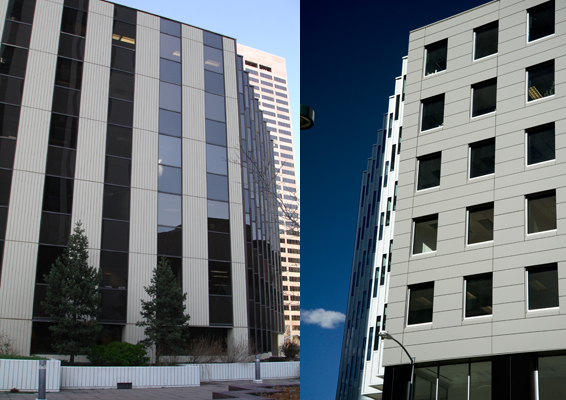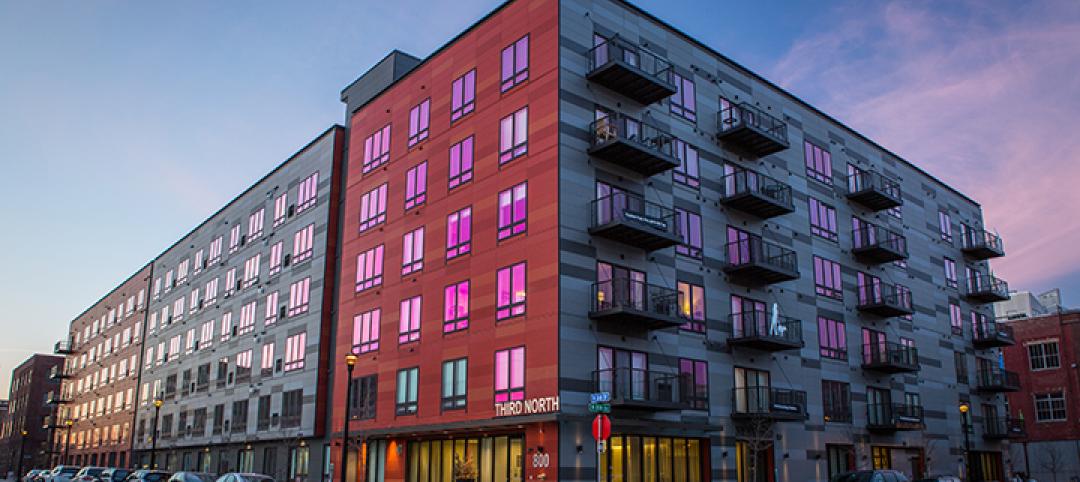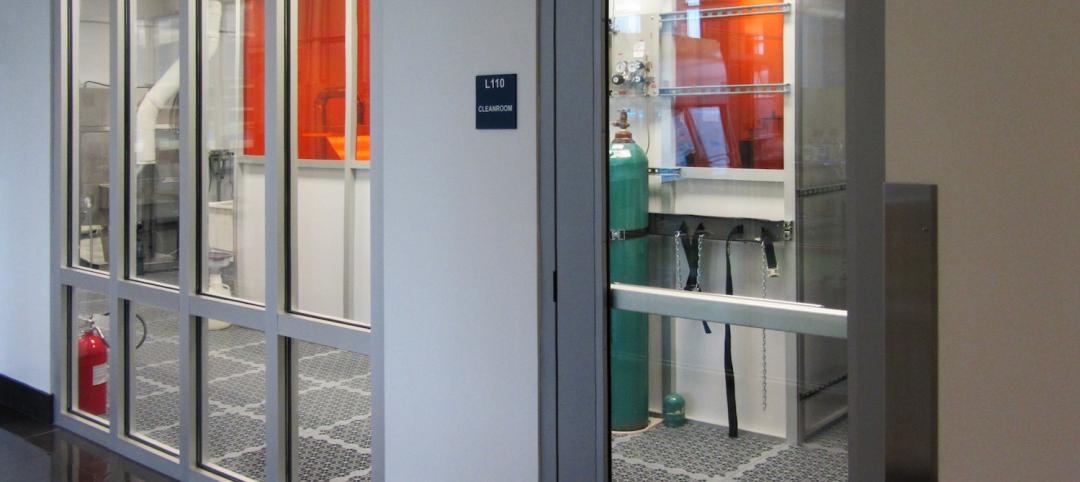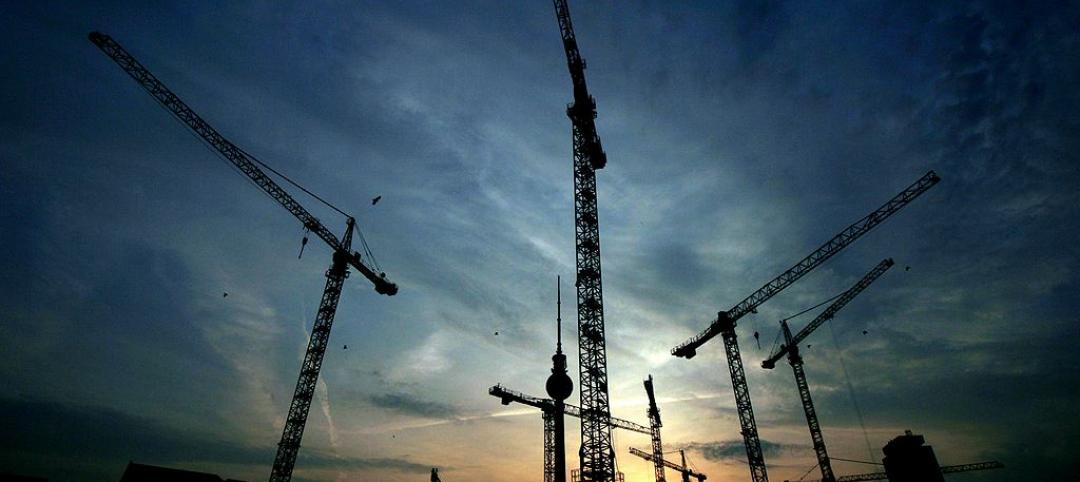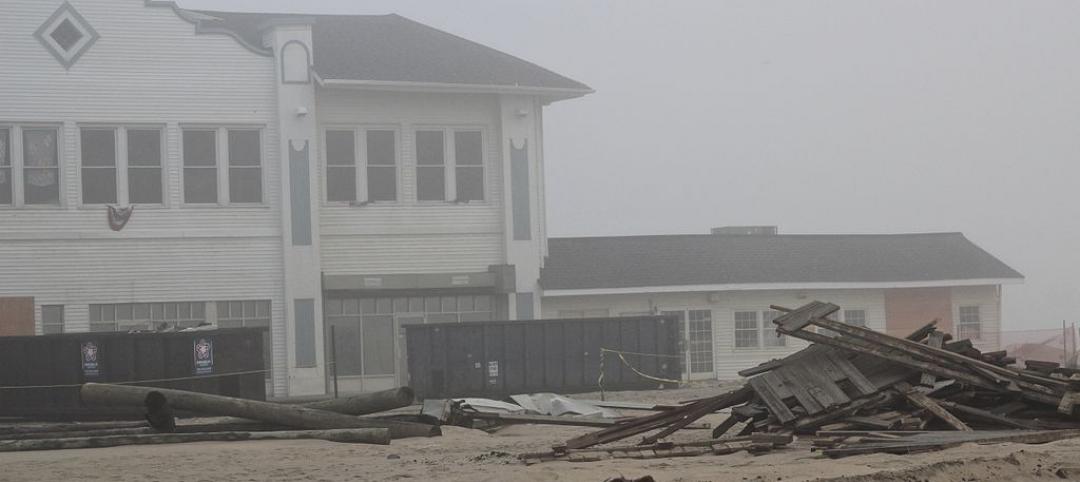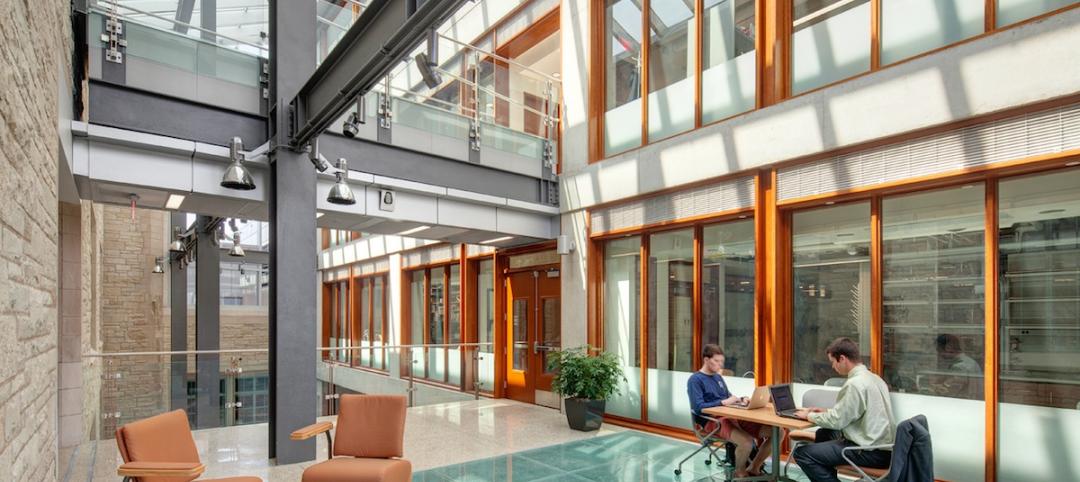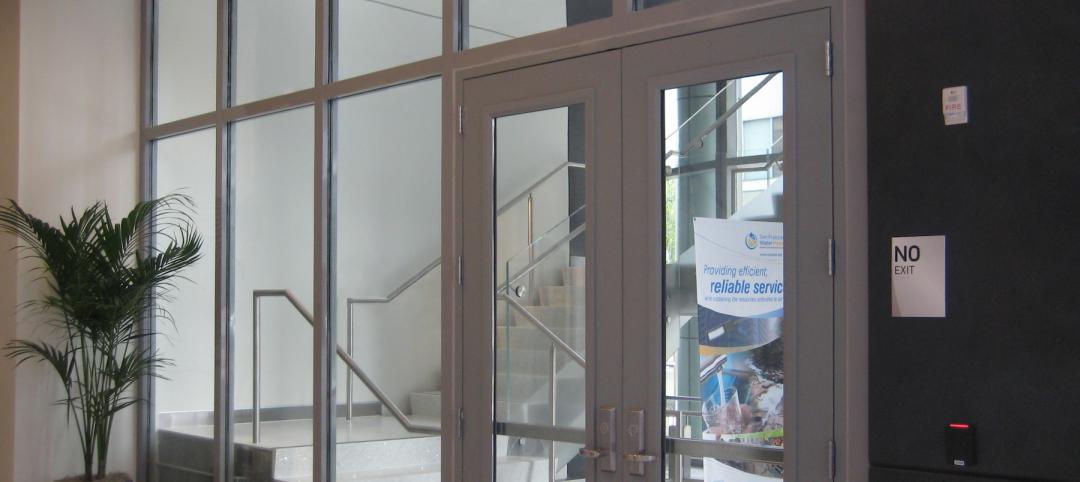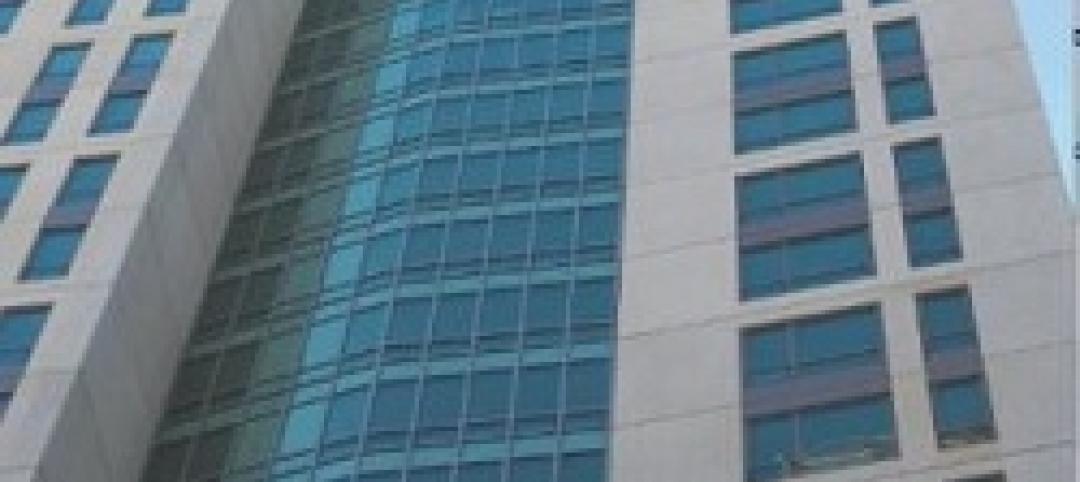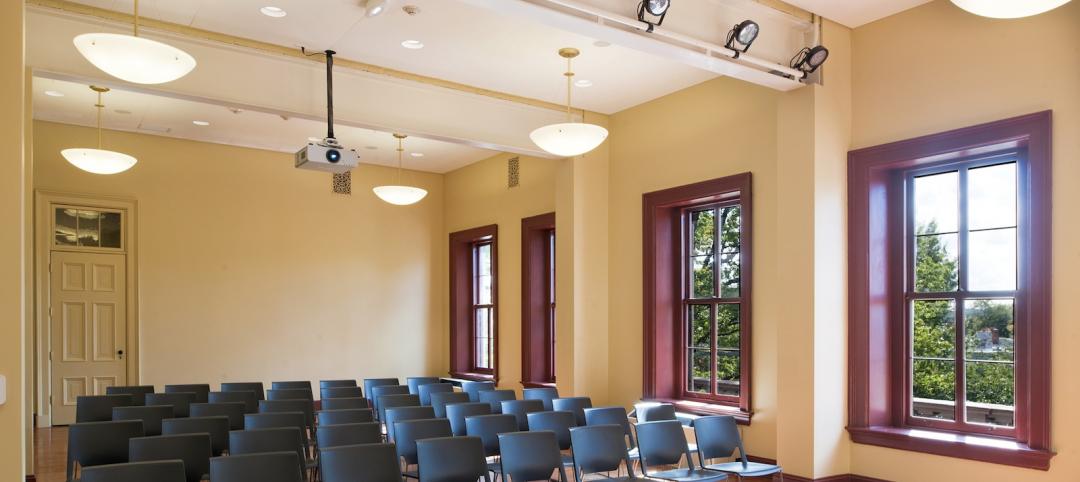An emerging trend in Denver, and across the country, involves retrofitting older office buildings to make them more marketable to tenants, as well as more energy efficient and sustainable. One example transformed the Larimer Corporate Plaza, a 205,000-sf office building located in downtown Denver’s financial district. The project involved redesigning and reconstructing the eight-story building’s façade and remodeling all the common areas, along with making extensive upgrades to the building’s mechanical systems.
The Building Team of 17th & Larimer LLC (owner), Klipp Architects, and J.E. Dunn Construction (general contractor) selected Centria's Formawall Dimension Series to help achieve the retrofit project's goals of improved aesthetics, sustainability, and energy efficiency. “The goal was to give a facelift to a 1970s-style building,” said David Villella, Metal Walls Manager at A-1 Glass Inc., a Centria dealer/installer. “The addition of the Centria panels, along with new color and how these both complemented the glass on the structure, brought this building into the 21st century.”
The Building Team used 12,850 sf of the Formawall system on the facade, resulting in a fresh, welcoming, and modern aesthetic. Formawall is the only wall system that provides Centria's patented advanced thermal and moisture protection (ATMP) in a single panelized component. Compared to traditional multi-component wall construction, the Formawall Dimension Series is manufactured as one component.
“The existing precast façade was to remain, so the design team needed a new façade that was lightweight, so as not to exceed the capacity of the existing structure,” added Villella. “Metal was the perfect choice because of its design flexibility and light weight.” +
Related Stories
Sponsored | | Jun 4, 2014
Fiber cement panels bridge historic and modern at Minneapolis apartment complex
The design team for the Third North apartment complex specified Nichiha’s Illumination Series architectural panels in a blend of six colors—divided into swaths of reds and swaths of grays—that combine with a rectilinear shape to complement nearby brick.
| May 27, 2014
Fire Rated Glass contributes to open lab environment at JSNN
Openness and transparency were high priorities in the design of the Joint School of Nanoscience & Nanoengineering within the Gateway University Research Park in Greensboro, N.C. Because the facility’s nanobioelectronics clean room houses potentially explosive materials, it needed to be able to contain flames, heat, and smoke in the event of a fire. SPONSORED CONTENT
| May 27, 2014
Contractors survey reveals improving construction market
The construction industry is on the road to recovery, according to a new survey by Metal Construction News. Most metrics improved from the previous year’s survey, including a 19.4% increase in the average annual gross contracting sales volume. SPONSORED CONTENT
| May 20, 2014
Kinetic Architecture: New book explores innovations in active façades
The book, co-authored by Arup's Russell Fortmeyer, illustrates the various ways architects, consultants, and engineers approach energy and comfort by manipulating air, water, and light through the layers of passive and active building envelope systems.
| May 20, 2014
Using fire-rated glass in exterior applications
Fire-rated glazing and framing assemblies are just as beneficial on building exteriors as they are on the inside. But knowing how to select the correct fire-rated glass for exterior applications can be confusing. SPONSORED CONTENT
| May 13, 2014
19 industry groups team to promote resilient planning and building materials
The industry associations, with more than 700,000 members generating almost $1 trillion in GDP, have issued a joint statement on resilience, pushing design and building solutions for disaster mitigation.
Sponsored | | May 3, 2014
Fire-rated glass floor system captures light in science and engineering infill
In implementing Northwestern University’s Engineering Life Sciences infill design, Flad Architects faced the challenge of ensuring adequate, balanced light given the adjacent, existing building wings. To allow for light penetration from the fifth floor to the ground floor, the design team desired a large, central atrium. One potential setback with drawing light through the atrium was meeting fire and life safety codes.
| Apr 25, 2014
Recent NFPA 80 updates clarify fire rated applications
Code confusion has led to misapplications of fire rated glass and framing, which can have dangerous and/or expensive results. Two recent NFPA 80 revisions help clarify the confusion. SPONSORED CONTENT
| Apr 8, 2014
Fire resistive curtain wall helps The Kensington meet property line requirements
The majority of fire rated glazing applications occur inside a building to allow occupants to exit the building safely or provide an area of refuge during a fire. But what happens when the threat of fire comes from the outside? This was the case for The Kensington, a mixed-use residential building in Boston.
| Apr 2, 2014
8 tips for avoiding thermal bridges in window applications
Aligning thermal breaks and applying air barriers are among the top design and installation tricks recommended by building enclosure experts.


